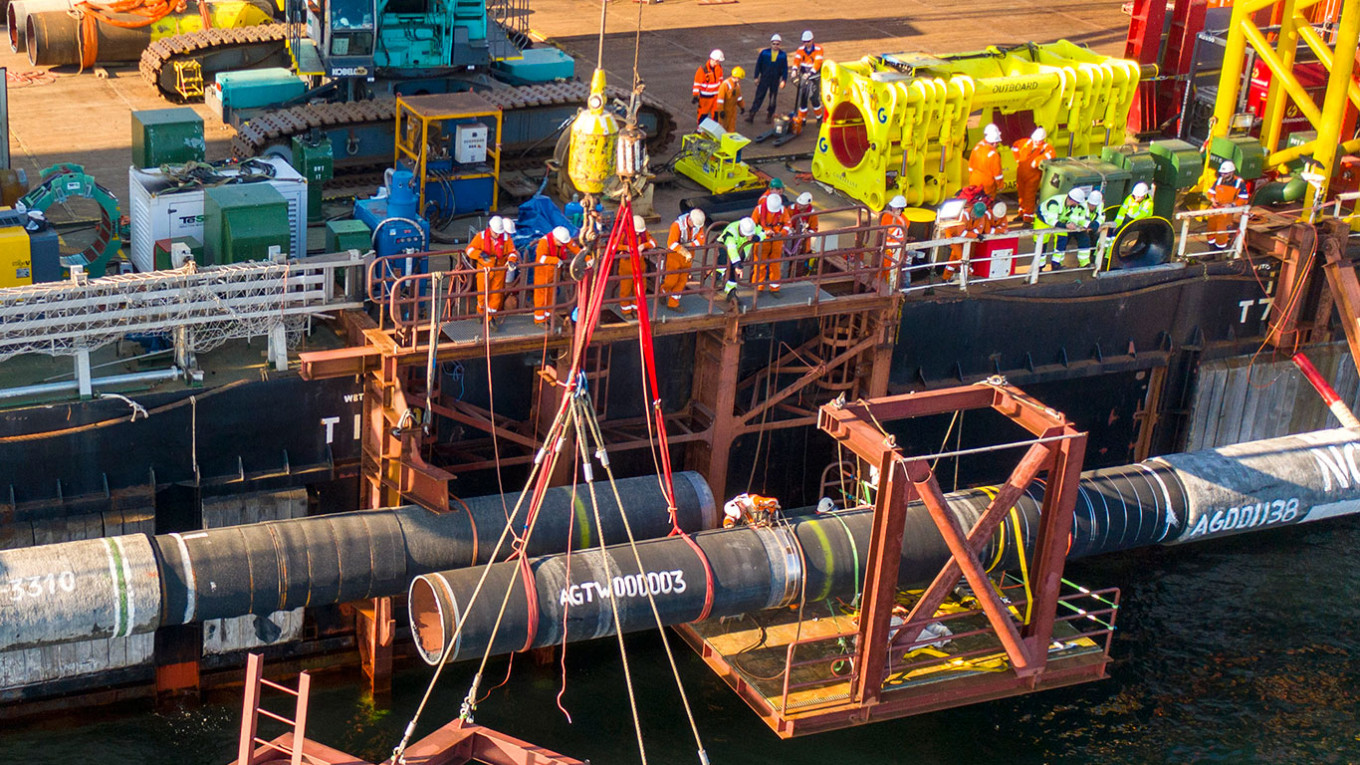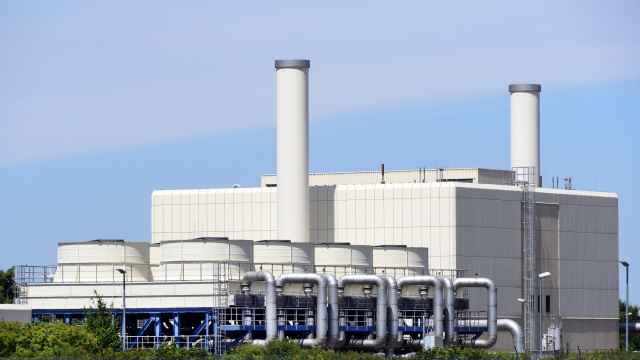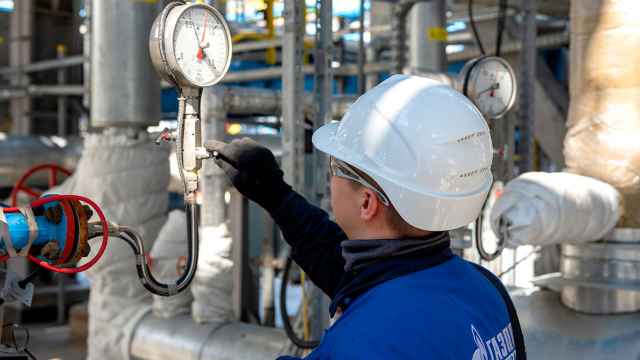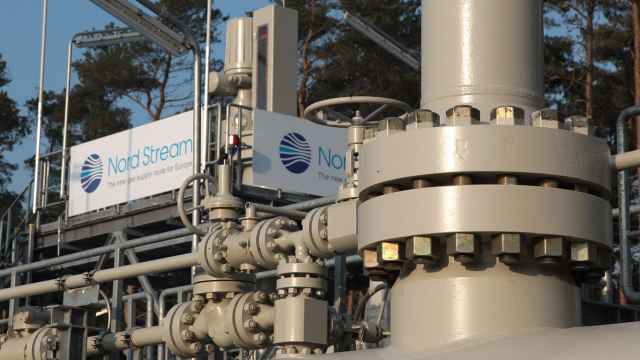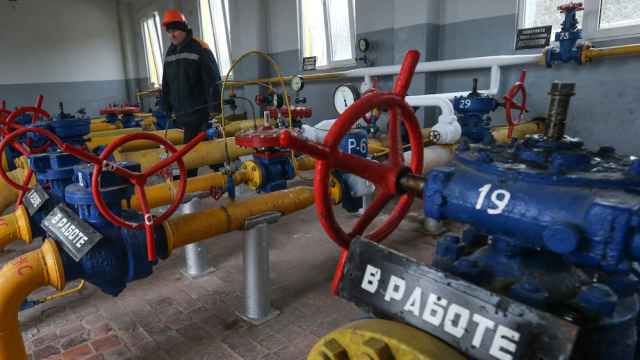Russia is seeking to use the current unprecedented surge in gas prices across Europe to demonstrate the importance of boosting energy cooperation with Moscow.
Spot prices for natural gas in Europe were up 20% at one point Wednesday, with prices for the important energy supply — used to power homes and factories across the continent — running at more than four times the level seen at this time last year.
As Europe’s largest gas supplier, Russia’s Gazprom could cash in on the surge, analysts believe. The Kremlin is also using spiraling prices to convince skeptical European capitals of the need both for long-term cooperation with Russia when it comes to energy, and of the importance in letting gas flow through the $12 billion Nord Stream 2 pipeline connecting Russia to Germany under the Baltic Sea.
The pipeline, completed earlier this month, is currently in the commissioning stage, where German regulators will assess whether it can be put into use and under what conditions. While the deadline for certification is January 2022, Moscow wants to get a jump start and says it is ready to start shipping gas almost immediately.
“The early commissioning of Nord Stream 2 will significantly help balance natural gas prices in Europe — this is obvious,” Kremlin spokesman Dmitry Peskov said in a press briefing Wednesday.
At full capacity, the pipeline could ship more than a quarter of Europe’s annual gas purchases from Russia.
Last week, when prices were already climbing sharply, President Vladimir Putin said: “countries which have agreed long-term contracts with us can only now rub their hands and rejoice, otherwise they would be paying three times as much.”
Most of Russia’s gas sales to Europe are made through long-term contracts signed with monopoly exporter Gazprom. Prices are dictated in advance by formulas linked to a set basket of reference prices or global oil. Analysts at Sova Capital estimate Gazprom’s average selling price per 1,000 cubic meters will be around $300 in the second half of the year — compared to spot prices which hit $960 in trading Wednesday.
Analysts say the rising prices are being driven by a combination of factors. Those include the reopening of economies following coronavirus lockdowns, an unseasonably cold and late winter earlier this year across Europe, and temporary weak performance of renewable energy sources in recent weeks, state-run VTB Bank said in a research note Wednesday.
But some have also pointed the finger at Russia for exacerbating the situation, attempting to squeeze the market in order to promote Nord Stream 2. Ukraine, which acts as a major transit route for Russian gas flowing to Europe and strongly opposed Nord Stream 2, said Gazprom significantly cut back on supplies to Europe in August.
Gas storage levels across Europe are also at their lowest in 10 years as countries draw down on existing gas supplies and hold back from topping-up amid higher prices.
Investors see the situation as a potential boon for Gazprom.
The state-controlled company’s share price has risen 15% over the last month. In a report this week, Sberbank analyst Andrei Gromadin said the company was one of the best positioned in the global energy market, predicting it will generate more free cash flow — a measure of profitability — in the next three years than it did over the last decade.
Gazprom reported a $7 billion net profit in the second quarter, a rapid recovery following a crash in demand for energy during 2020 as the pandemic sent much of the world into lockdown.
A Message from The Moscow Times:
Dear readers,
We are facing unprecedented challenges. Russia's Prosecutor General's Office has designated The Moscow Times as an "undesirable" organization, criminalizing our work and putting our staff at risk of prosecution. This follows our earlier unjust labeling as a "foreign agent."
These actions are direct attempts to silence independent journalism in Russia. The authorities claim our work "discredits the decisions of the Russian leadership." We see things differently: we strive to provide accurate, unbiased reporting on Russia.
We, the journalists of The Moscow Times, refuse to be silenced. But to continue our work, we need your help.
Your support, no matter how small, makes a world of difference. If you can, please support us monthly starting from just $2. It's quick to set up, and every contribution makes a significant impact.
By supporting The Moscow Times, you're defending open, independent journalism in the face of repression. Thank you for standing with us.
Remind me later.


